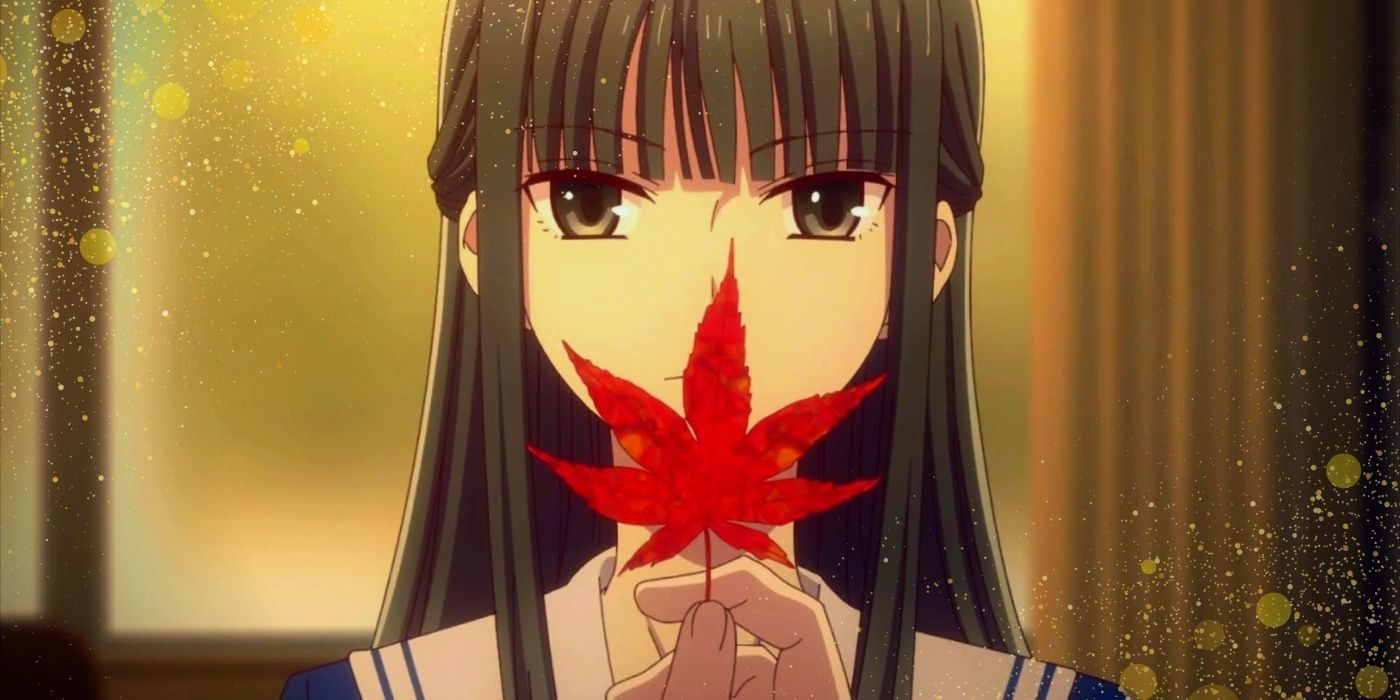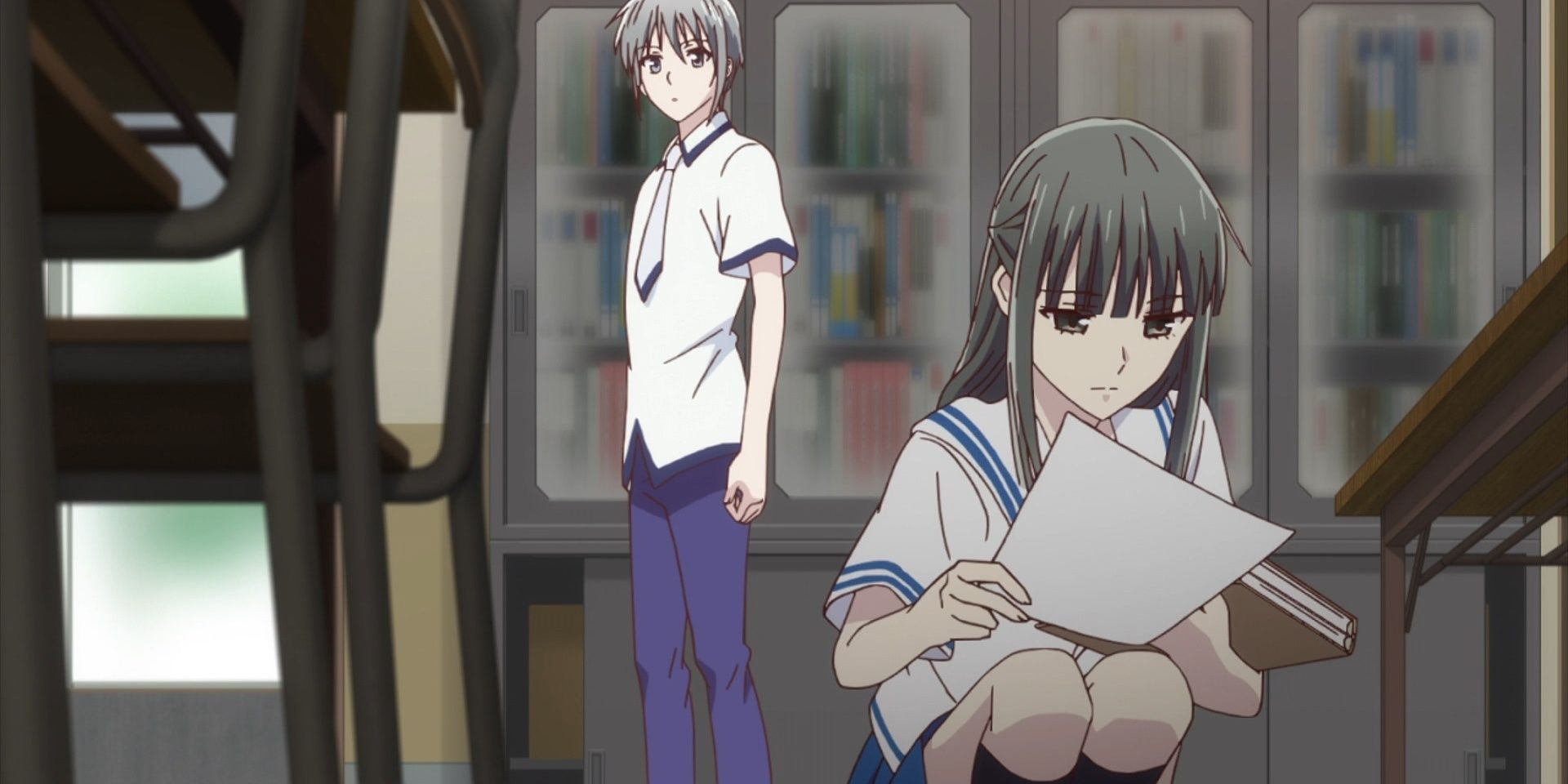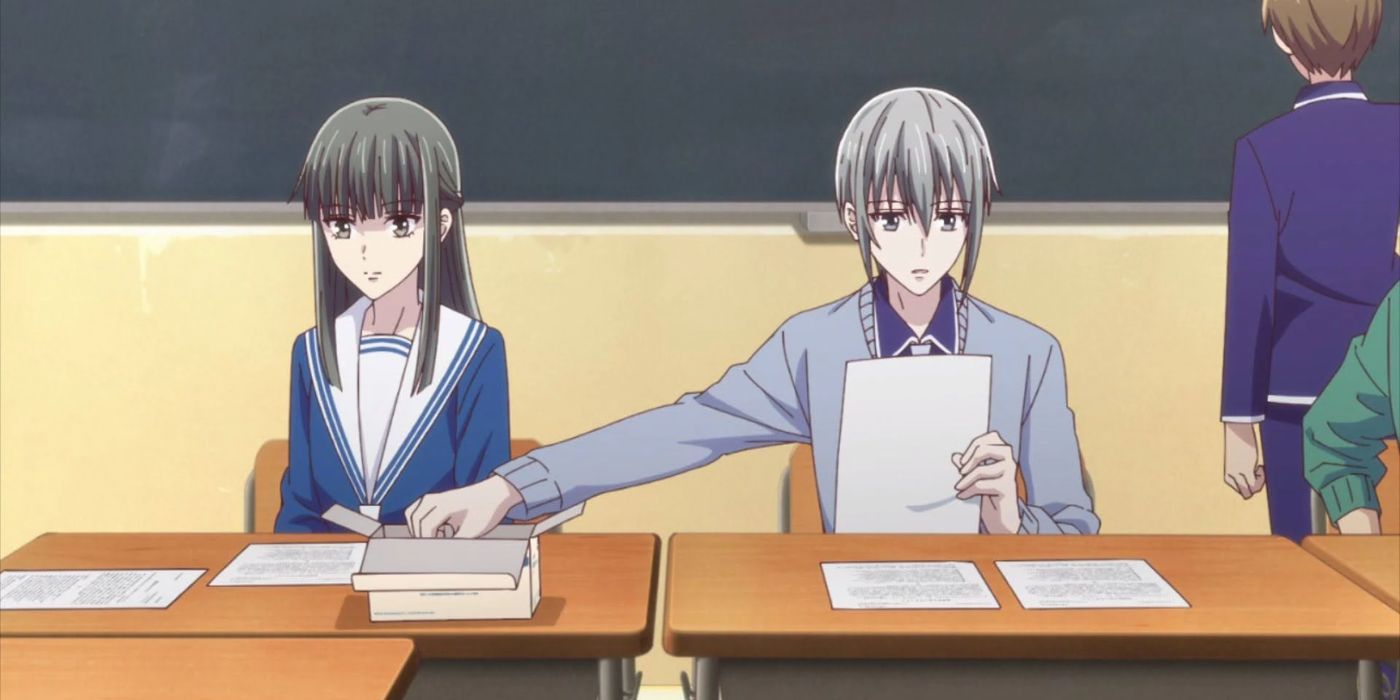Obsessive-compulsive disorder is one of fiction's most misunderstood and underrepresented mental illnesses. More often than not, OCD-coded characters are depicted through harmful stereotypes revolving around tidiness and hyper-organization. Though the disorder certainly manifests like this for some people, fictional media too often focuses on stereotypical compulsions rather than the actual distress it causes.
Anime has a dodgy track record of portraying mental health issues. Though it's made strides, the medium still has a way to go in tactfully discussing psychological disorders. The classic shojo series, Fruits Basket, is an exception and still receives praise today for its revolutionary coverage of mental illnesses. Machi Kuragi, in particular, is one of the medium's best representations of obsessive-compulsive disorder.
Machi's Destructive Compulsions Are a Result of Her Mother's Perfectionist Expectations
Other notable examples of OCD-coded characters in anime are Soul Eater's Death The Kid and Kuroko's Basketball's Shintaro Midorima. Death The Kid is obsessed with symmetry; for example, his favorite number is eight because it divides evenly. His obsession with symmetry caused him immense distress in the series, often depicted as exaggerated meltdowns. In Kuroko's Basketball, Midorima never leaves the house without checking his horoscope and ensuring he has his lucky item of the day as prescribed by his astrologer of choice, Oha-Asa.
However, Machi is different from them since her compulsions are rooted in her traumatic past. Machi's mother constantly ingrained the idea of perfection into her head. Even though Machi always tried her best to be a perfect student and daughter, nothing was ever good enough for her mom, who responded to her efforts with cruel verbal abuse. Machi also described herself as a "void," stating that she lost her identity because she was forced to live inside her mother's expectations. Machi began resenting the idea of perfection and associated the concept with unpleasant feelings. She therefore started compulsively destroying things to release that buildup of negative emotions.
Machi's Compulsions & How Others Respond to Her Behavior Are Extremely Realistic
Machi expresses obvious discomfort toward the very idea of cleanliness, as seen when Yuki and Kakeru visited her house and cleaned her room. Other students don't understand why she always destroys things, and some even resorted to dubbing Machi "The Destroyer" after she shattered a brand-new box of chalk. Throughout Fruits Basket, Machi is seen pacing around in the snow to disrupt its perfectly even appearance and refusing to fix the broken windows in her apartment.
Kakeru and many other students snapped at or ridiculed Machi for her destructive habits, but Yuki quickly understood why she hated tidiness and perfection. He didn't try to change her behavior; instead, he offered to make footprints across the snow with her after she explained her actions. One of the best scenes in the entire series was when Yuki realized Machi was bothered by a brand-new box of chalk placed in front of her and snapped a piece in half. More often than not, people with OCD are ridiculed by others in real life, and their suffering is seldom taken seriously, so seeing Yuki's response was refreshing.
Machi's destructive compulsions aren't typically associated with OCD in media, and that's precisely why she's such a revolutionary example of the disorder's representation. More often than not, characters with obsessive-compulsive disorder are forced into a box of harmful stereotypes regarding excessive tidiness and organization, obsession with symmetry and constant handwashing. This may be true for some, but most people with OCD have vastly different compulsions and habits that have nothing to do with cleanliness. Machi Kuragi is one of anime's best representations of OCD because she takes a wrecking ball to all preconceived media expectations of the disorder and portrays it in a realistic light that makes viewers with the condition feel seen.



